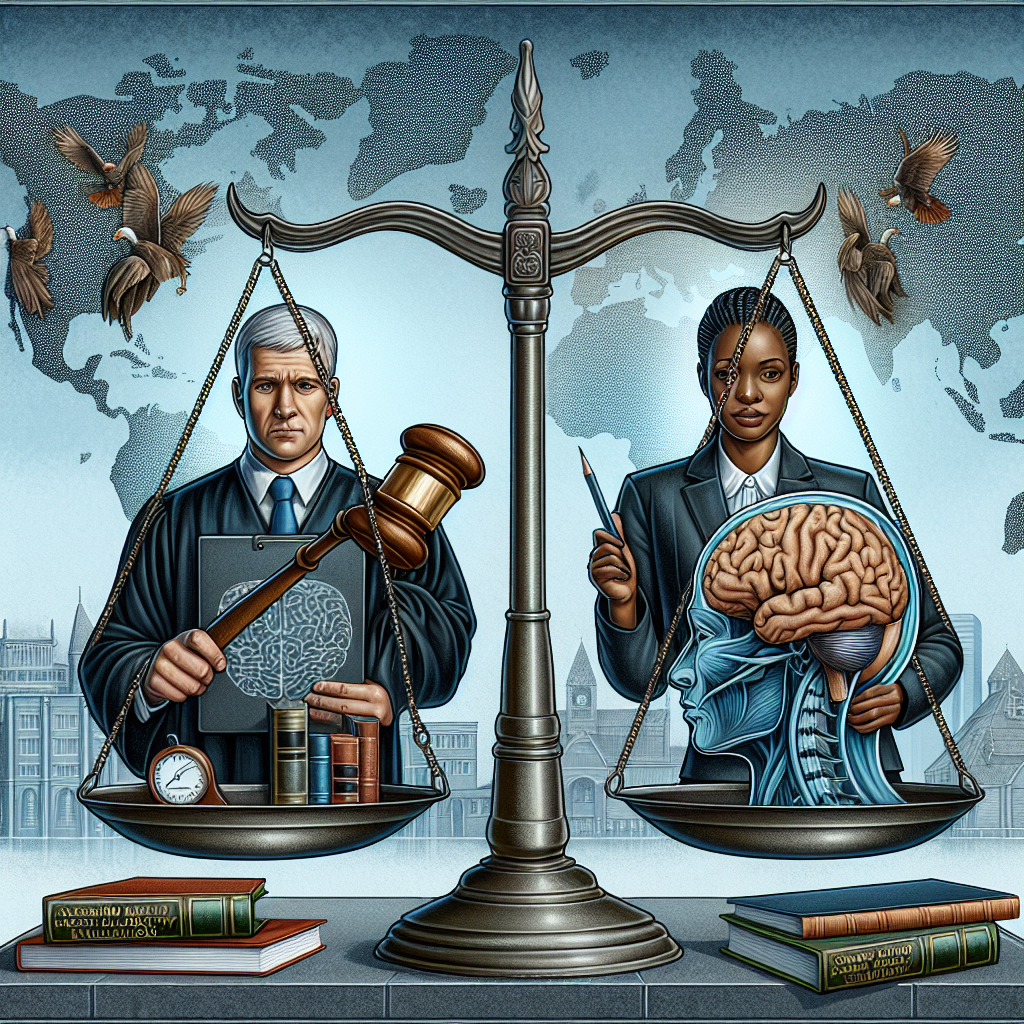
Introduction: A Critical Intersection of Justice and Psychology
Imagine standing in a courtroom, the weight of a life-altering decision hanging in the balance. Among the agitated whispers and rustling papers, one question looms large: Is the individual on trial truly capable of understanding the proceedings against them? Assessing Mental Capacity: The Essential Role of Competency Evaluations in the Justice System is not merely an academic exercise; it’s a fundamental pillar of a fair and just legal system. This article will delve into why competency evaluations are crucial, the methods used, relevant case studies, and how they affect both individuals and the judicial process.
Understanding Mental Capacity: What It Means in the Legal Context
The Definition of Mental Capacity
Mental capacity refers to an individual’s ability to make informed decisions. In a legal context, it encompasses understanding the charges against them, the implications of the proceedings, and the potential consequences of their choices. This determination plays a vital role in ensuring that justice is upheld.
The Standard for Competency
The standard for determining competency can differ from state to state. Generally, a defendant is competent to stand trial if they have a rational and factual understanding of the proceedings and can assist their attorney in their defense. This dual standard serves as a critical checkpoint within the judicial process.
Why Competency Evaluations Are Necessary
- Fairness in the Legal Process: Ensuring that individuals understand the nature of their charges fosters a sense of fairness.
- Protection of Rights: Competent individuals are better equipped to assert their rights effectively.
- Preventing Miscarriages of Justice: Incompetent individuals standing trial can lead to wrongful convictions and harm the legal system.
Methodologies for Assessing Mental Capacity
Psychological Assessments
Psychologists and mental health professionals utilize various evidence-based assessments to evaluate an individual’s mental capacity. These may include standardized tests, clinical interviews, and behavioral observations.
Common Tests Used
| Test Name | Purpose |
|---|---|
| Competency Assessment Tool (CAT) | Assesses understanding of legal proceedings and the ability to assist counsel. |
| MacArthur Competence Assessment Tool | Evaluates decision-making abilities in various contexts. |
| Mental Status Exam (MSE) | Provides a comprehensive snapshot of psychological functioning. |
Interdisciplinary Approach
In many cases, mental health professionals are not the only individuals involved in competency evaluations. Collaboration with legal experts can enhance the validity of the assessment. Legal professionals can better articulate the nuances of legal standards while mental health professionals offer insights into cognitive and emotional capabilities.
Behavioral Indicators
Non-verbal cues and behavioral indicators also play significant roles in these assessments. Observing how an individual interacts with their environment can reveal underlying cognitive dysfunction that tests might miss.
Case Studies: When Competency Evaluations Stepped In
Case Study 1: The Case of John Doe
John Doe, a defendant charged with a serious crime, displayed erratic behavior during arraignments. His attorney suspected that he might not comprehend the charges. A psychological evaluation revealed that John was suffering from a severe mental illness, which impaired his decision-making ability. As a result, the court deemed him incompetent to stand trial, leading to treatment rather than prosecution.
Analysis: This case highlights the necessity of assessing mental capacity to prevent unfair trials and ensure appropriate actions are taken, such as treatment over punishment.
Case Study 2: The Amanda Smith Case
In another instance, Amanda Smith faced charges of fraud. During preliminary interviews, her responses were inconsistent and confusing. Mental health assessments confirmed that Amanda could not grasp the legal proceedings against her, leading to a finding of incompetence. With this determination, the court provided her access to psychiatric care.
Analysis: This case exemplifies how competency evaluations can redirect individuals towards rehabilitation rather than punitive measures.
Table: The Outcomes of Competency Evaluations
| Case | Charge | Outcome | Importance of Evaluation |
|---|---|---|---|
| John Doe | Serious Crime | Incompetent; Mental Health Treatment | Protection of Rights |
| Amanda Smith | Fraud | Incompetent; Access to Care | Fair Trial Rights Preserved |
The Role of Competency Evaluations in Different Legal Contexts
Criminal Justice
In criminal cases, competency evaluations can determine if the defendant is fit for trial. This crucial aspect ensures that justice is not only served but is also served fairly.
Civil Cases
Competency evaluations extend beyond the criminal justice system into civil law, particularly in matters involving guardianship, contract disputes, and elder law. Courts often rely on these evaluations to establish if individuals can make decisions about their personal and financial affairs.
Family Law
In family law cases, especially those involving custody disputes, assessing mental capacity is critical. Evaluations can inform courts whether a parent can adequately care for their child.
Current Trends and the Future of Competency Evaluations
Increased Use of Technology
As technology advances, more sophisticated tools are becoming available for competency evaluations, including virtual assessments. These innovations may enhance the reliability and accessibility of evaluations.
Legislative Changes
There are ongoing discussions about the need for legislative reforms to standardize competency evaluations across states. Such changes could enhance the fairness of the judicial process.
Conclusion: The Path Forward
Assessing Mental Capacity: The Essential Role of Competency Evaluations in the Justice System is undeniably a topic that merits continued attention and exploration. Robust evaluations empower the judicial system to serve justice ethically and equitably. Legal practitioners, mental health professionals, and advocates must work collaboratively to refine these assessments, ensuring that each case receives the thoughtful consideration required to uphold individual rights.
Motivational Takeaway
As we advance into a more integrated future of law and mental healthcare, let us strive for a justice system that champions fairness, compassion, and the holistic understanding of mental capacity. Each individual deserves not only to be heard but also to have their rights respected and protected.
Frequently Asked Questions
1. What is the primary purpose of competency evaluations?
Competency evaluations determine whether an individual can understand and participate in their legal proceedings, ensuring a fair trial.
2. Who conducts these evaluations?
Typically, qualified mental health professionals, such as psychologists or psychiatrists, conduct competency evaluations.
3. What happens if a person is found incompetent to stand trial?
If deemed incompetent, the individual may receive treatment and rehabilitation rather than facing trial until they are restored to competency.
4. Can competency evaluations be challenged in court?
Yes, the findings of a competency evaluation can be challenged by the legal representatives of the defendant based on disputes over the evaluation process or results.
5. How can families help ensure a loved one’s rights are protected during legal proceedings?
Families can advocate for competency evaluations if they suspect that their loved one is not mentally capable of participating in the legal process, ensuring that their rights are upheld.
In today’s world, assessing mental capacity is more critical than ever. By understanding and supporting the role of competency evaluations in the justice system, we empower ourselves and others to engage in advocacy and pursue justice with integrity.















